PHENOBARBITAL - ORAL
PHONETIC PRONUNCIATION: (fee-no-BARB-ih-tall)
COMMON BRAND NAME(S): Luminal
GENERIC NAME(S): phenobarbital
Uses
USES: This medication is used alone or with other medications to control seizures. Controlling and reducing seizures lets you do more of your normal daily activities, reduces your risk of harm when you lose consciousness, and lessens your risk for a possibly life-threatening condition of frequent, repeated seizures. Phenobarbital belongs to a class of drugs known as barbiturate anticonvulsants/hypnotics. It works by controlling the abnormal electrical activity in the brain that occurs during a seizure. This medication is also used for a short time (usually no more than 2 weeks) to help calm you or help you sleep during periods of anxiety. It works by affecting certain parts of the brain to cause calming.
How to use PHENOBARBITAL - ORAL
HOW TO USE: Take this medication by mouth with or without food, usually once daily at bedtime for seizure control, or as directed by your doctor. Take with food or milk if stomach upset occurs. If you are using the liquid form of this medication, measure the dose carefully using a special measuring device/cup. Do not use a household spoon because you may not get the correct dose. Dosage is based on your medical condition, phenobarbital blood levels, and response to treatment. The dosage in children may also be based on weight. Your doctor may direct you to start this medication at a low dose and gradually increase your dose to prevent side effects such as drowsiness and dizziness. Follow your doctor's instructions carefully. Do not take more or less of this drug than prescribed. It may take several weeks to reach the best dose for you and completely control your seizures. This medication works best when the amount of drug in your body is kept at a constant level. Therefore, take it at the same time(s) each day. Do not stop taking this medication (and other anticonvulsant medications) without consulting your doctor. Your seizures may worsen or cause a very severe seizure that is difficult to treat (status epilepticus) when this drug is suddenly stopped. This medication may cause withdrawal reactions, especially if it has been used regularly for a long time or in high doses. In such cases, withdrawal symptoms (such as anxiety, hallucinations, twitching, trouble sleeping) may occur if you suddenly stop using this medication. Withdrawal from phenobarbital can be severe and include seizures and (rarely) death. To prevent withdrawal reactions, your doctor may reduce your dose gradually. Consult your doctor or pharmacist for more details, and report any withdrawal reactions right away. Though it helps many people, this medication may sometimes cause addiction. This risk may be higher if you have a substance use disorder (such as overuse of or addiction to drugs/alcohol). Take this medication exactly as prescribed to lower the risk of addiction. Ask your doctor or pharmacist for more details. When this medication is used for a long time for anxiety or to help you sleep, it may not work as well. Phenobarbital should only be used for a short time for anxiety or sleep. Talk with your doctor if this medication stops working well. Tell your doctor if your anxiety or seizure control worsens (such as the number of seizures increases).
Side Effects
Precautions
Interactions
Overdose
Images
Reviews
Faq for PHENOBARBITAL - ORAL
- Phenobarbital is primarily used to treat seizures and control epilepsy. It can also be used to treat insomnia, anxiety, and other conditions.
- Phenobarbital works by increasing the activity of a certain neurotransmitter called gamma-aminobutyric acid (GABA) in the brain. This helps to reduce brain activity, calming seizures or promoting sleep.
- Common side effects of phenobarbital may include drowsiness, dizziness, headache, confusion, nausea, vomiting, constipation, or feeling lightheaded. These side effects are usually temporary and may not occur in all individuals.
- Yes, phenobarbital can be addictive if taken for long periods or at high doses. It is classified as a controlled substance due to its potential for abuse and dependence. It is essential to take phenobarbital exactly as prescribed by your doctor to minimize the risk of addiction.
- The onset of action for phenobarbital varies from person to person. In some cases, it may take a few weeks for the full therapeutic effects to be noticeable. It is important to follow the prescribed dosage and give it time to work effectively.
- Yes, phenobarbital can interact with various medications, including other seizure medications, antidepressants, sedatives, opioids, and certain antibiotics. It is crucial to inform your doctor about all the medications you are taking to avoid potential interactions.
- Phenobarbital should be used with caution in individuals with a history of substance abuse, liver or kidney disease, respiratory problems, or porphyria. It may also increase the risk of suicidal thoughts or behaviors in some people, especially at the beginning of treatment.
- Phenobarbital is generally not recommended during pregnancy or breastfeeding, as it can pass through the placenta or breast milk and affect the baby. However, the decision to use phenobarbital during pregnancy or breastfeeding should be made after discussing the risks and benefits with a healthcare professional.
- If you miss a dose, take it as soon as you remember unless it is close to the time for your next scheduled dose. Do not double the dose to catch up. It is important to maintain a consistent dosing schedule to optimize the effectiveness of phenobarbital.
Disclaimer
IMPORTANT: HOW TO USE THIS INFORMATION: This is a summary and does NOT have all possible information about this product. This information does not assure that this product is safe, effective, or appropriate for you. This information is not individual medical advice and does not substitute for the advice of your health care professional. Always ask your health care professional for complete information about this product and your specific health needs.
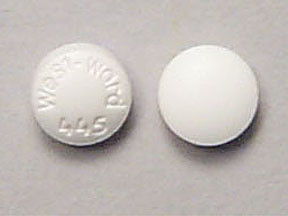
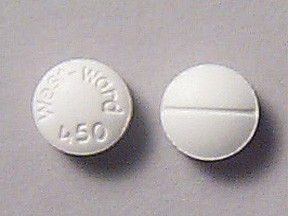
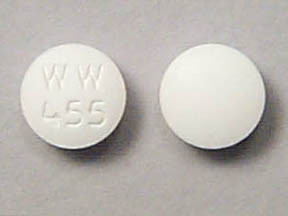
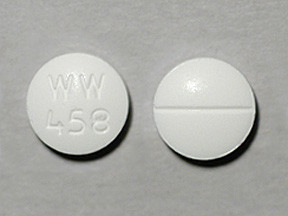
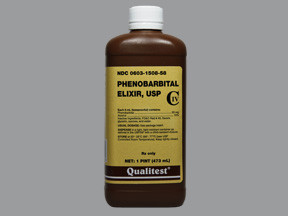
No Reviews Yet